Early Life and Background of Gaius Caesar
Family lineage and upbringing
Gaius Caesar, often referred to as Caligula in later years, came from a prominent lineage that was deeply entwined in the political tapestry of ancient Rome. He was born on August 31, 12 AD, to Julia Livilla and Germanicus, a celebrated general. His father, Germanicus, was not just a military leader but also was directly connected to the powerful Julio-Claudian dynasty, being the son of the great General Nero Claudius Drusus. This lineage established Gaius within a family that’s both revered and scrutinized, setting the stage for the complex life he would lead.
Growing up, Gaius was more than just the offspring of a notable family; he was enveloped in the political ambitions and turmoil of the era. His mother, Julia, was the daughter of Augustus, the first Roman Emperor, which provided Gaius with a unique status. Augustus had sought to expand his family’s influence, and Gaius, with his illustrious parentage, was viewed as a potential successor in a time when the stability of succession was a burgeoning concern in the Empire.
However, Gaius’s early life was not devoid of challenges. After the death of his father in 19 AD, when he was merely seven years old, his mother faced immense scrutiny and political danger. The tastes of tragedy came calling when Julia Livilla was exiled, leaving Gaius and his siblings to fend for themselves under the watchful eye of their growingly paranoid relatives. His upbringing was a juxtaposition of affluence and despair; while he had access to the resources and education befitting a member of the elite, he also bore the burdens of being a potential victim in the vicious methods of political rivalry prevalent at the time.
With a remarkable family background marred by political intrigue, Gaius Caesar’s formative years set him on an unpredictable path, teetering between the expectations of an imperial legacy and the unavoidable machinations of Roman politics.
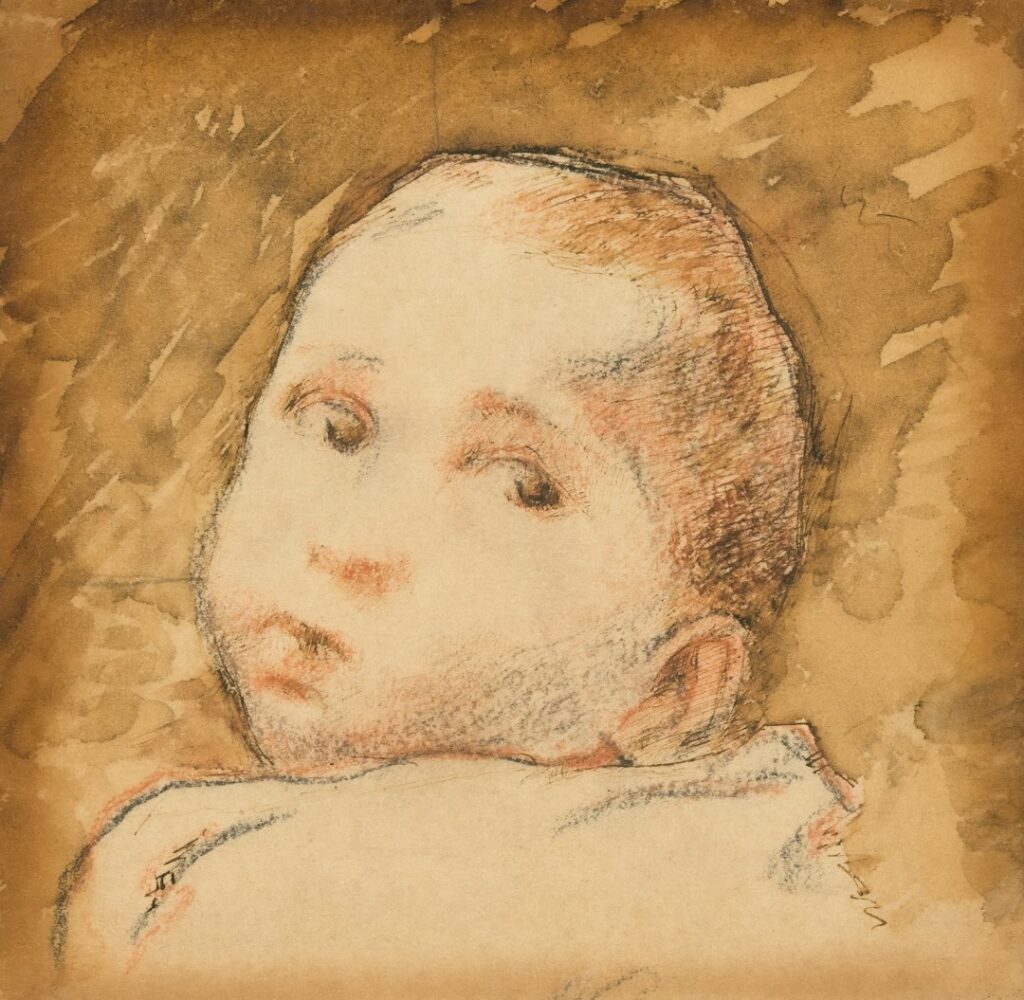
Gaius Caesar’s education and military training
As the son of a decorated military commander and a member of the imperial family, Gaius’s education was paramount. His formative years were filled with tutelage from the greatest thinkers and military tutors of the time. It was essential not only for noble children to engage in rigorous academic study but also for aspiring leaders to master the arts of war and governance.
Educational Highlights:
- Literature and Rhetoric: Gaius was educated in the arts of literature and rhetoric, which were vital for any young Roman of status. His mastery of oration would later play a notable role in his political life.
- Philosophy: Engaging with prominent philosophical schools, he explored the tenets of Stoicism and Epicureanism, absorbing lessons on morality, governance, and the human condition.
- History: The lessons from historians must have intrigued him, offering insights into the successes and failures of previous leaders and the intricate web of Roman history.
Gaius’s military training began at an early age. By the time he was around 16, he was already involved in military campaigns, accompanying his father’s legions in their marches. Here are some key aspects of his military education:
Military Training Aspects:
- Physical Training: Gaius excelled in physical endeavors, training in the art of combat and horse riding. His training was comprehensive, meant to prepare him relentlessly for future roles in military leadership.
- Strategic Training: More than just fighting, he learned the intricacies of strategy and command. Understanding troop movements, siege tactics, and logistics became second nature to him during his youth.
- Command Experience: During his formative years, Gaius reportedly served under the command of seasoned generals, absorbing practical knowledge and real-world strategies in battlefield leadership.
Both education and military training were instrumental in shaping Gaius’s character, which oscillated between the disciplined demeanor of a soldier and the eloquent charm of a politician. There were certainly signs of his ambitious nature early on. Tales circulated about how he sought to impress both his peers and mentors, showcasing not just proficiency in his studies but an insatiable hunger for knowledge and power.
However, the lessons learned did not come without their drawbacks. There were numerous accounts illustrating how his early military influences contributed to his later erratic and often cruel behavior as an Emperor. The duality of his experiences – sheltered upbringing overshadowed by political intrigue and the harsh realities of military life – left a profound impact on him.
In the crucible of these formative years, Gaius Caesar learned the art of navigating the treacherous waters of Roman politics and military command, while also grappling with the intrinsic conflict between his noble ambitions and the savage realities of leadership in ancient Rome.
The complexities of Gaius’s early life laid a rich foundation for his subsequent rise and fall, culminating in his reign as emperor, characterized by the very traits that had been shaped during his upbringing: brilliance, brutality, and a thirst for recognition.
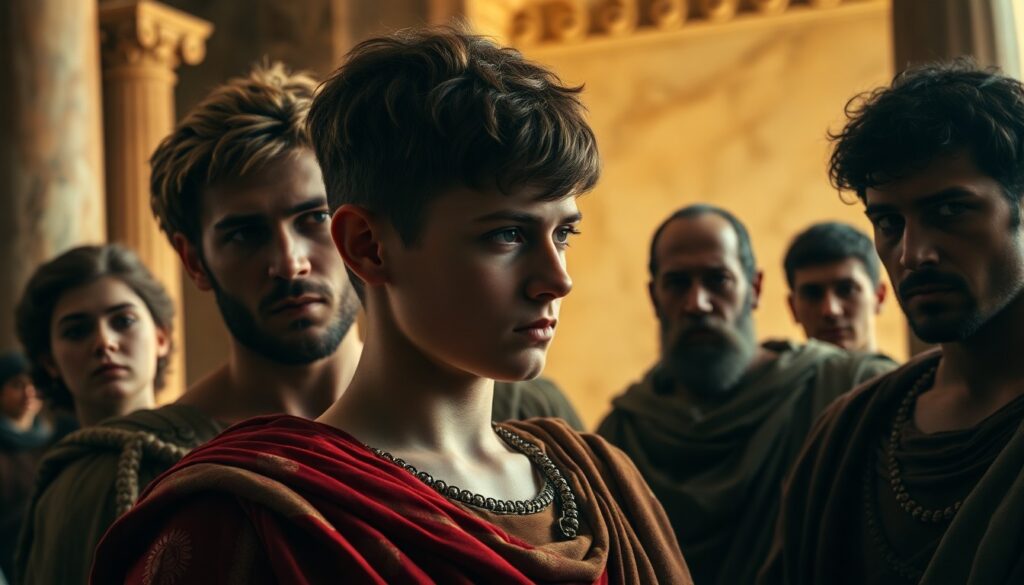
Gaius Caesar’s Role in Augustus’s Dynastic Plans
Gaius Caesar, known primarily as Caligula, played a distinctive role in the grand narrative of Rome, particularly within Augustus’s vision for a lasting dynasty. Following the exploration of his early life, we discover how Gaius’s place within the Julio-Claudian dynasty shaped not only his destiny but the fate of the empire itself.
Position within the Julio-Claudian dynasty
As a member of the Julio-Claudian dynasty, Gaius was steeped in the legacy of one of Rome’s most influential bloodlines. The Julio-Claudians were a potent mix of power, political maneuvering, and family dynamics that often bordered on the tumultuous. Gaius was born into this world of influence on the shoulders of giants, and his position was both a privilege and a burden.
Family Connections:
- Augustus: Gaius was the great-grandson of Augustus, the first Emperor, whose reforms established the framework for the imperial system.
- Germanicus: His father was Germanicus, a war hero in Rome’s eyes, whose popularity vaulted Gaius into the spotlight. As the son of such an esteemed figure, Gaius carried an inherited charisma that both empowered and confined him.
- Agrippina the Elder: His mother was the granddaughter of Augustus, linking Gaius even more intimately to imperial ambitions. This connection made him a prime candidate for succession, a factor that weighed heavily on his shoulders from an early age.
This intricate web of relationships not only made Gaius a potential successor but also placed him in a politically charged environment. The expectations placed on him to uphold the family name often forged a stark contrast between external admiration and the internal pressures he faced.
Moreover, Gaius’s position became even more convoluted following the deaths of his siblings. With the deaths of potential heirs like Drusus and Julia, Gaius stood at the forefront, intensifying Augustus’s desire to shape him into the ideal ruler—one who could embody both charisma and military prowess.
Gaius’s youth was underpinned by both the allure of his lineage and the weight of responsibility. It was during Augustus’s reign that discussions about succession began to rise, as the future of the dynasty became a paramount concern for the aging emperor.
Influence on Augustus’s succession strategies
Augustus knew well that the foundation of his empire relied not only on military might and political savvy but also on the stability of succession. He intended for his dynasty to continue beyond his own rule, and Gaius was selected to play a pivotal role in that vision. Augustus perceived Gaius as the beacon of hope that could carry on the family legacy.
Succession Strategies:
- Prominent Positioning: Augustus strategically placed Gaius in positions of influence and visibility. By showcasing the young Caesar in military campaigns and public life, Augustus aimed to create an image that linked his reign to the vigor and promise of youth.
- Educational Emphasis: Gaius’s education, as previously noted, was designed to mold him into a suitable leader. Augustus commissioned the finest scholars and military experts to ensure that Gaius emerged as a well-rounded figure capable of earning the people’s loyalty.
- Political Alliances: Augustus fostered connections through marriages and alliances. He sought to strengthen Gaius’s position by tying him to other influential Roman families, ensuring that his relationships would bolster his claim to legitimacy.
- Encouraging Popularity: Augustus recognized the importance of public perception. He understood that if Gaius could cultivate a following, it would enhance the respect for the Julio-Claudian dynasty. This was exemplified during public festivals, where Gaius would often play a prominent role, appearing in ceremonial garb and engaging with citizens.
However, as the dynamics of power shifted, Gaius found himself amid an intricate web of favor and jealousy. Augustus’s manipulations acted as a double-edged sword; while they endeavored to elevate Gaius, they also attracted envy and competition from other potential heirs.
In the twilight of Augustus’s life, the tension in the imperial household became palpable. Gaius, witnessing family members vying for favor, must have felt the pressure peg higher. The renowned historian Suetonius provides insights into Gaius’s feelings during this time, hinting at the growing anxiety and ambition that characterized his formative years.
As Augustus’s health waned—rumors circulated about his declining state—Gaius’s situation became precarious. He was groomed for succession, yet surrounded by unease and political machinations. Augustus’s eventual death in 14 AD ultimately opened the floodgates for the uncertainties that followed.
In the end, Gaius Caesar’s preparation for the imperial mantle was both a blessing and a curse. The groundwork laid out by Augustus posed immense hopes for the future; yet, Gaius’s ascent also ushered an unpredictable chapter in Roman history.
Ultimately, the blend of familial expectation and political aspiration created an individual who would one day become synonymous with both grandeur and madness. His role within the Julio-Claudian dynasty was a pivotal point in shaping how the legacy of Augustus was both honored and challenged.
As we reflect on Gaius Caesar’s influence during this transformative period in Roman history, we see a young man who stood as a symbol of both promise and peril—a portrayal that would shape the imperial narrative long past his fleeting reign.
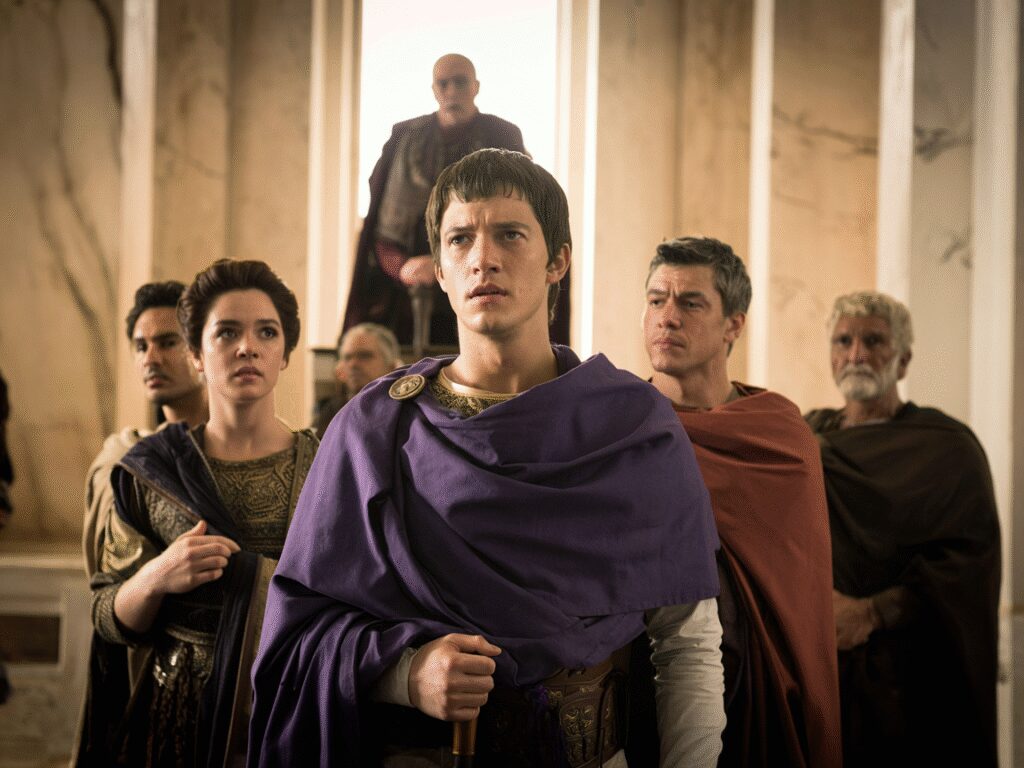
The Tragic Demise of Gaius Caesar
Following an exploration of Gaius Caesar’s formative years and his role within Augusto’s grand dynastic plans, we come to a sorrowful turn in this imperial narrative: the untimely death of Gaius Caesar. His demise marked the end of a promising reign and cast a shadow over the Julio-Claudian dynasty, leaving reverberations that would affect the future of Rome itself.
Events leading to Gaius Caesar’s untimely death
Gaius’s ascent to power seemed destined for greatness. He became the third Roman Emperor after Tiberius, rising to power in 37 AD. Yet, his rule quickly transformed into one of the most notorious periods in Roman history, often overshadowed by erratic behavior and tyrannical governance.
Throughout his brief reign, several key events and societal factors culminated in Gaius’s tragic end:
- Enforcement of Power: Upon ascending the throne, Gaius endeavored to consolidate his power. He launched into a series of impressive—and sometimes outrageous—reforms that initially captured the public’s adoration. However, this was soon overshadowed by his increasingly despotic behavior. He often flouted traditional republican values and established a cult of personality around himself.
- Paranoia and Distrust: As time progressed, Gaius’s paranoia magnified to alarming levels. Tales of conspiracies and betrayal swirled around him. Friends became enemies, and it seemed that even his closest advisors were not spared from the emperor’s suspicion. This toxic climate led to purges and executions, further exacerbating the climate of fear in Rome.
- Provocation of the Senate: The tension between Gaius and the Senate grew as he sought to diminish their authority. Historical accounts indicate that he often insulted prominent senators, denigrating their standing and fueling resentment within the political elite. His callous disregard for their power led many to quietly plot against him.
- Extravagance and Excess: Gaius indulged in a lavish lifestyle, lavishly spending the imperial treasury on extravagant parties, games, and constructions, including a bridge from his palace to the Temple of Jupiter. While such exhibitions initially entertained the populace, this excess began to tarnish his reputation. The gap between the opulence of his court and the struggles of ordinary citizens became glaringly apparent.
The culmination of these factors provoked a growing discord among his followers, leading to secretive plots aimed at his assassination. The situation reached a boiling point in 41 AD when plots against his life converged with fervid intensity.
Assassination: On January 24, 41 AD, Gaius was assassinated in a meticulously planned attack led by officers in the Praetorian Guard—men sworn to protect him. The plot involved key figures like Cassius Chaerea, who had become disillusioned with Gaius’s erratic behavior and growing violence. On that fateful day, as Gaius entered the Senate, he was ambushed:
- The Attack: The conspirators struck, stabbing Gaius multiple times. According to historical accounts, Gaius cried out for help, even lamenting, “I am still alive!” In the end, more than thirty wounds marked his body, a brutal reminder of the distrust he had sown amongst his kin.
- Immediate Aftermath: Following Gaius’s assassination, chaos ensued in Rome. The political landscape shifted dramatically, while the death of the emperor left a power vacuum infamous for its uncertainty.
Gaius’s tragic demise was both a climax of personal failings and a reflection of a system that had begun to teeter on the edge of chaos. His life was a promise dashed by the shadows of paranoia and excess, leading to a conclusion that felt almost inevitable given the circumstances.
Impact on Augustus and the dynasty
The legacy of Gaius Caesar’s abrupt end reverberated across the Roman Empire and had profound implications for both Augustus, his great-grandfather, and the broader Julio-Claudian dynasty.
Impact on Augustus’s Legacy:
- Souring Imperial Reputation: Augustus’s vision of a stable, prosperous dynasty faced a significant setback after Gaius’s assassination. The contrasting images of the esteemed founder and his erratic successor left historians pondering the efficacy of Augustus’s succession plans. Many began to see the Julio-Claudian line—not as a beacon of hope—but as a lineage intertwined with madness and volatility.
- Failure of Succession: Augustus aimed to establish a strong succession plan, but Gaius’s demise highlighted the flaws in this carefully curated system. The unforeseen brutalities of tyranny pierced through the facade of a smooth transition, illustrating the challenges inherent in fostering an enduring dynasty.
- Reflection on Rule and Governance: Augustus’s strategies for establishing Imperial power were now called into question. As historians unpack Gaius’s actions, they find deeper implications regarding governance, ambiguity in political alliances, and the consequences of unchecked power.
Impact on the Julio-Claudian Dynasty: The repercussions of Gaius’s death unfolded across the dynasty and set the stage for future tribulations:
- Rise of Claudius: Following the assassination, Gaius’s uncle, Claudius, ascended the throne. Though Claudius had previously been seen as weak and unfit to rule, the chaos surrounding Gaius’s death thrust him into power. This shift brought fresh dynamics to the Julio-Claudian line, as Claudius sought to stabilize what Gaius had destabilized.
- Further Turmoil: Claudius’s ascension didn’t mark the end of strife; rather, it ignited further rivalries among factions. The specter of Gaius’s tyranny loomed large, creating ripples of dissent and intrigue within the ruling class. The intrigues of the palace continued their intertwining dance of ambition and bloodshed.
In conclusion, Gaius Caesar’s tragic demise represents a turning point within the Julio-Claudian dynasty. His life was marked by promise gone awry, a vivid example of how ambition, paranoia, and excess can distort leadership. The shadow of his death cast a long pall over the empire and underscored the complexities tied to rulership, succession, and the unpredictable tides of political life in ancient Rome. As history would show, this single event became a pivotal chapter in one of the most intriguing, albeit tumultuous, dynasties the world has ever known.
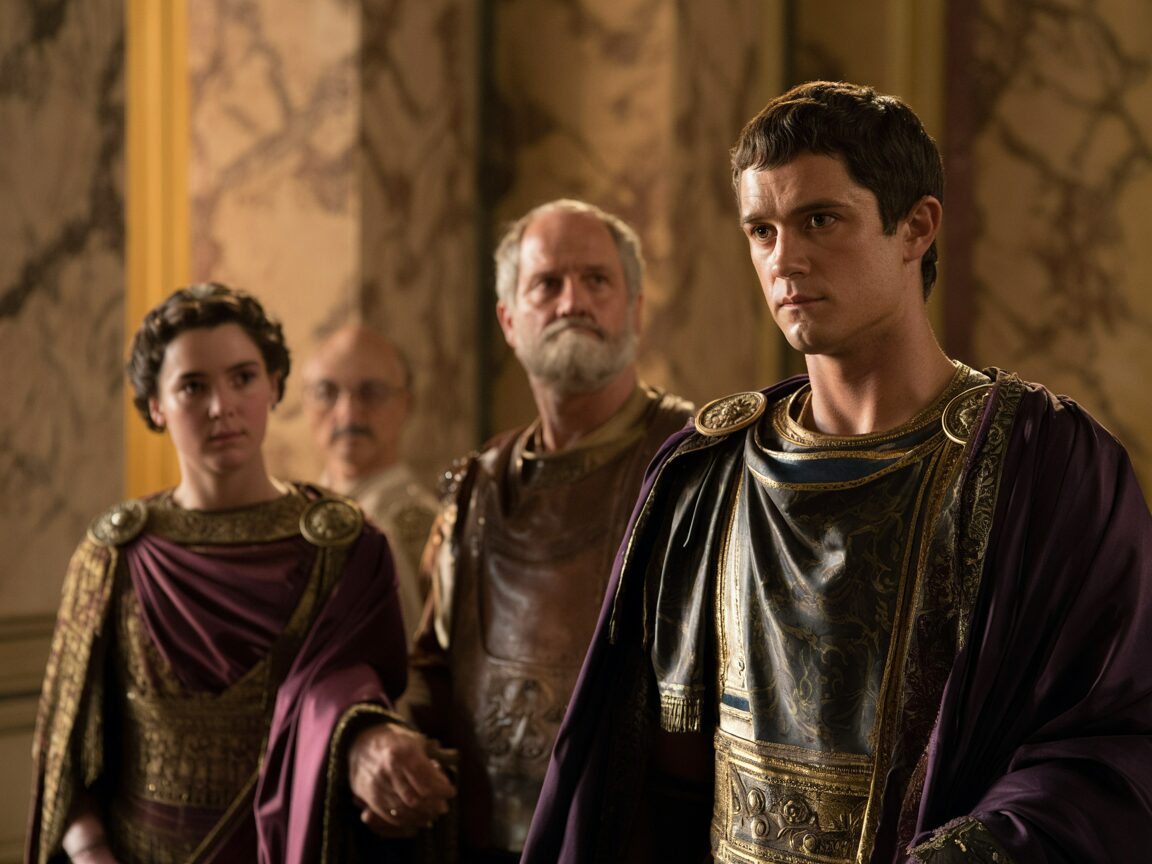
Legacy and Historical Impact of Gaius Caesar
Having delved into the tumultuous events surrounding Gaius Caesar’s life and his tragic demise, we now turn towards the broader implications of his rule and the legacy he left behind. The narrative of Gaius Caesar is complex and multifaceted; it speaks to both the heights of Roman ambition and the depths of human frailty. His impact resonates through history, inspiring discussions about power, governance, and the moral responsibilities of leadership.
Assessing Gaius Caesar’s significance in Roman history
Gaius Caesar occupies a controversial yet pivotal position in the annals of Roman history. While his reign lasted only four years, the events that transpired during that brief time would have lasting consequences for Rome and its leadership ideals. To fully grasp Gaius’s significance, it’s essential to consider various aspects of his rule, including his ambitions, policies, and the fallout from his actions.
Symbol of Tyranny:
- Gaius Caesar, often remembered by the moniker “Caligula,” became emblematic of the perils inherent in absolute power. His descent into tyranny highlighted how unchecked ambition could corrupt even those born into privilege.
- His reign became a cautionary tale, a reminder that the lust for power must be tempered with responsibility and ethical governance. The stories of his infamous acts, such as allegedly declaring himself a god, establishing a lavish lifestyle, and executing perceived enemies, cemented his reputation as a tyrant.
Cultural and Administrative Changes:
- Despite his notorious reputation, Gaius’s reign included noteworthy cultural strides. His governance placed a distinct emphasis on the arts, encouraging theatrical productions and public spectacles. These initiatives contributed to the vibrant cultural milieu of Rome during his era.
- Gaius endeavored to reshape the administration, laying the groundwork for future reforms. His controversial policies, which emphasized centralized imperial authority, would be echoed by his successors, notably Claudius and Nero. The legacy of Gaius in governance suggests that even the most flawed leaders can influence administrative practices for generations.
Complex Legacy:
- Gaius’s story offers a lens through which we can examine the darker corners of power dynamics. Many historians believe that the legacy of Gaius served to fuel subsequent discussions on governance within the Roman Senate and beyond. His reign led to more scrutiny concerning leadership structures and the potential for rulers to devolve into tyranny.
- Gaius also inadvertently highlighted the need for checks and balances in governance. His extremist actions prompted later leaders to tread carefully around the tumultuous waters of political backlash, an essential consideration for a growing empire.
In understanding Gaius’s significance in Roman history, it’s evident that his tenure represents a complex narrative—one that both warns against unchecked ambition while also underscoring the multifaceted nature of leadership.
Reflections on his portrayal in contemporary sources
To appreciate Gaius Caesar’s legacy, we must also examine how contemporary sources portrayed him. Historical writers like Suetonius, Tacitus, and Cassius Dio documented his reign, and their accounts often reflect the biases and societal contexts of their time.
Diverse Perspectives:
- Suetonius: His “Lives of the Twelve Caesars” offers vivid tales, infusing Gaius’s story with drama and sensationalism. One of Suetonius’s most famous anecdotes describes Gaius’s horse, Incitatus, purportedly being appointed a consul—a testament to Gaius’s eccentricity. This account contributes to the perception of Gaius as a ruler who strayed far from reason and sanity.
- Tacitus: A more reserved historian, Tacitus’s work often addresses broader themes of power and morality. While he acknowledged the troubles during Gaius’s rule, his narrative subtly navigated political implications, framing Gaius’s tyranny as part of a larger trend towards the decline of Roman values. Tacitus’s insights invite readers to evaluate the socio-political landscape in which Gaius operated, thereby lending depth to his story.
Historical Bias:
- The portrayals of Gaius by both Suetonius and Tacitus can reflect the moral and ideological values of their time. Gaius’s name became synonymous with excess and moral corruption; thus, it’s crucial to read historical accounts with an understanding of their inherent biases. The cycle of political retrenchment often colored the perception of rulers who followed in the wake of Gaius’s downfall.
- Contemporary rhetoric frequently highlighted Gaius’s brutality, leading many to consider him an outlaw among emperors. This perception often overshadows more constructive assessments of his policies and cultural contributions. Hence, historians argue for a balanced examination of his life, one that might account for significant accomplishments alongside infamous misdeeds.
Public Memory and Modern Legacy:
- In recent years, Gaius has often emerged in popular culture, appearing in films, novels, and media that strive to capture his infamous reign. These modern portrayals tend to glamorize or dramatize his life, illustrating the fascination that continues to surround him. This cult of personality speaks volumes about humanity’s fascination with power and moral ambiguity.
- Academic discourse also reflects an evolving assessment of Gaius’s historical importance. Modern historians continue to dissect his life, focusing on broader societal implications of his rule. In this context, Gaius serves as a case study in the complexities of leadership, governance, and the susceptibility of power to lure individuals into destructive realms.
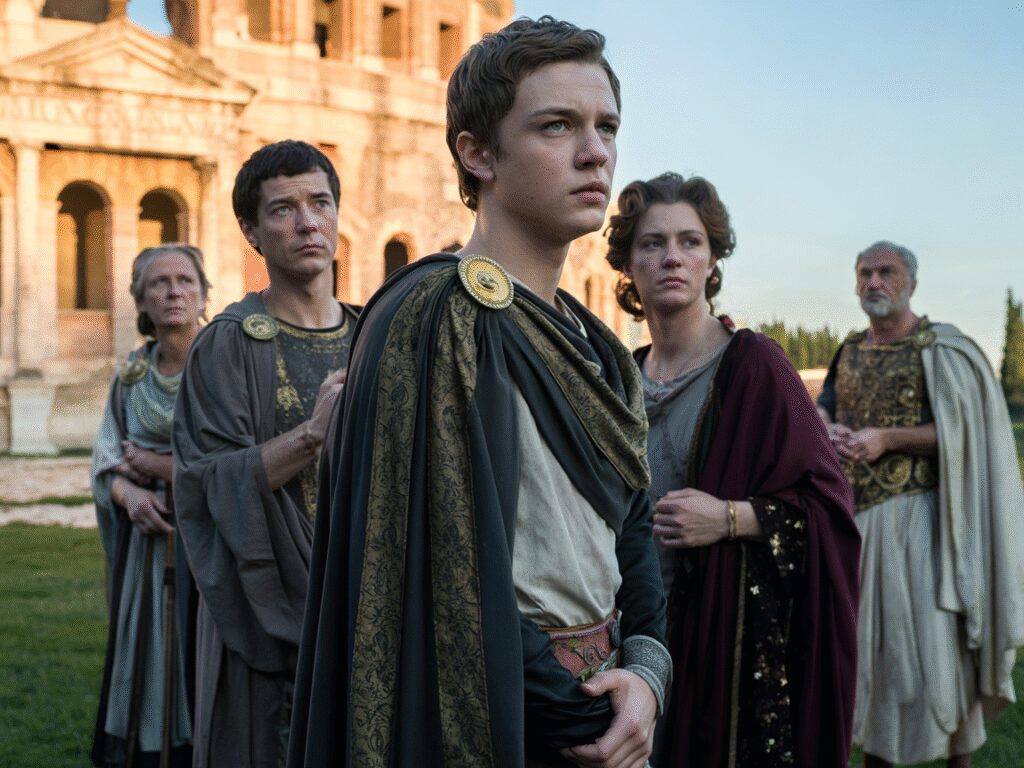
In conclusion, Gaius Caesar’s legacy endures as a compelling narrative—one that interweaves themes of ambition, tyranny, and cultural evolution. His significance in Roman history transcends the tales of wild excess and tyranny, inviting deeper contemplation about the nature of power, responsibility, and the human condition. Through the lens of contemporary sources, we come to appreciate the multi-layered aspects of his life; while he embodies the potential for moral decay, he also acts as a reminder that history often reflects our follies and promises. Gaius’s story is one that continues to resonate, reminding us that the pursuit of power must take place against the backdrop of responsibility and ethical governance.

